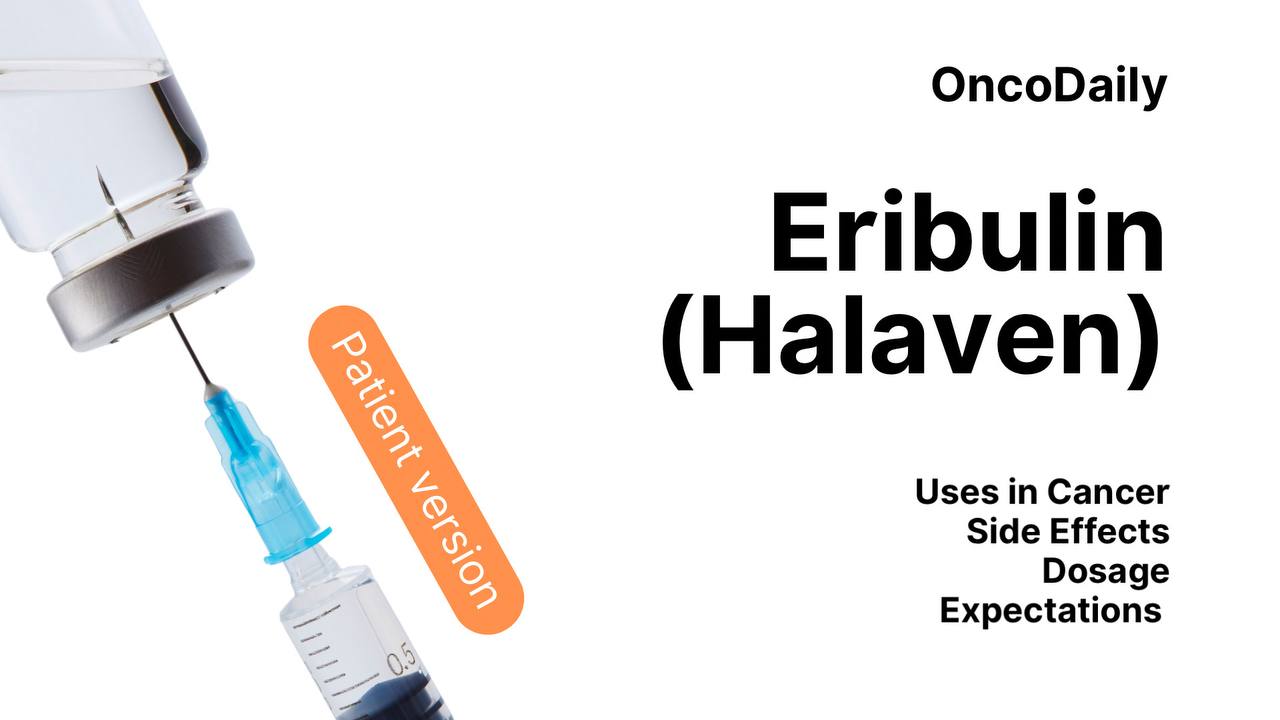Eribulin is a chemotherapy drug primarily used for treating metastatic breast cancer and liposarcoma, a rare form of soft tissue cancer. It is a key treatment option for patients who have not responded to previous therapies, offering hope for those dealing with advanced or recurrent cancers. Eribulin works by disrupting the process of cell division, making it an effective option for slowing the growth of cancer cells.
What Is Eribulin and How Does It Work?
Eribulin, marketed under the brand name Halaven, is a chemotherapy agent that belongs to a class of drugs called microtubule inhibitors. Microtubules are essential components of the cell structure and play a critical role in the process of cell division. Eribulin interferes with the growth and function of microtubules, which prevents cancer cells from dividing and ultimately leads to their death. This makes it an effective treatment for cancers that are hard to treat with traditional chemotherapy.
Eribulin binds to microtubules in cells, preventing them from polymerizing (assembling). This action disrupts the formation of the mitotic spindle, a structure necessary for cell division. As a result, cancer cells cannot divide and proliferate, which leads to their destruction. By targeting cancer cells’ ability to divide, Eribulin slows the progression of tumors and can help improve survival in patients with advanced stages of cancer.
What Types of Cancer Does Eribulin Treat?
Eribulin is mainly used to treat two types of cancer:
- Metastatic Breast Cancer: This is breast cancer that has spread to other parts of the body. Eribulin is typically used when other chemotherapy options have not been effective. It can be used alone or in combination with other treatments to help manage the disease.
- Unresectable or Metastatic Liposarcoma: Liposarcoma is a rare cancer that develops in fat cells. Eribulin is approved for use in patients with liposarcoma that cannot be removed through surgery or has spread to other parts of the body.
What Is a Clinical Trial and Why Does It Matter?
A clinical trial is a research study designed to test new drugs and treatments in patients to determine their safety and effectiveness. Before Eribulin was approved, it went through multiple phases of clinical trials to assess how well it worked, what side effects it caused, and whether it was better than existing treatments. Clinical trials are essential because they provide scientific evidence that a drug can help patients while ensuring it is safe for widespread use.
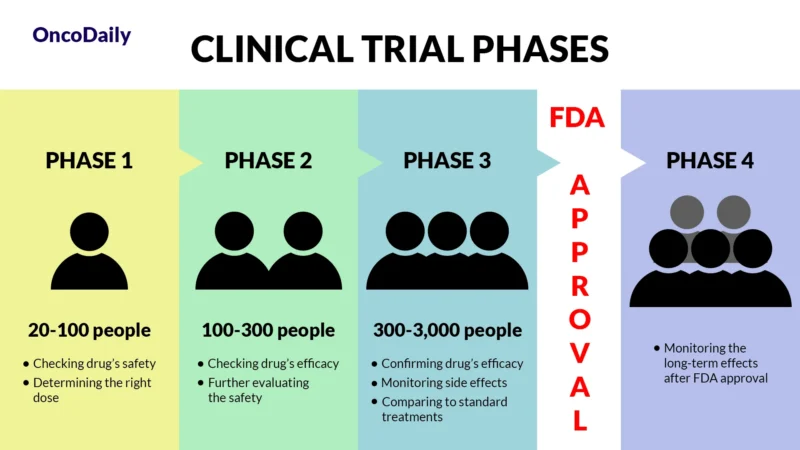
What Does FDA Approval Mean?
When a drug receives FDA approval, it means that after rigorous testing in clinical trials, it has been shown to be both safe and effective for treating a specific condition. This approval makes the drug widely available for doctors to prescribe and helps patients access new, cutting-edge treatments sooner.
Efficacy and Results from Clinical Trials
Eribulin (Halaven) was first approved by the FDA in November 2010 for the treatment of metastatic breast cancer in patients who had already undergone at least two chemotherapy regimens. This approval offered an important new option for patients with limited treatment choices.
In January 2016, Eribulin’s approval was expanded to include the treatment of unresectable or metastatic liposarcoma, a rare cancer that had no approved treatments before. This made Eribulin the first drug approved specifically for liposarcoma, based on evidence showing it significantly improved overall survival.
Eribulin for Breast Cancer
The approval for metastatic breast cancer was based on the EMBRACE Phase 3 trial, which compared Eribulin to other treatments in patients who had already received multiple rounds of chemotherapy. The trial found that patients receiving Eribulin had a median overall survival of 13.1 months, compared to 10.6 months for those on the physician’s choice treatment. This result was a significant improvement, offering hope for patients with limited options. However, common side effects included fatigue, neutropenia, and peripheral neuropathy, the latter sometimes leading to discontinuation.
Eribulin for Liposarcoma
For liposarcoma, Eribulin’s approval was supported by a Phase 3 trial that compared it to dacarbazine, another chemotherapy drug. The trial showed that patients receiving Eribulin had a median overall survival of 13.5 months, while those on dacarbazine had a survival of 11.3 months. In patients with liposarcoma, the improvement was even more pronounced, with a median survival of 15.6 months for Eribulin compared to 8.4 months for dacarbazine. Additionally, progression-free survival was also better with Eribulin. These results underscored the drug’s benefit, particularly for liposarcoma patients.
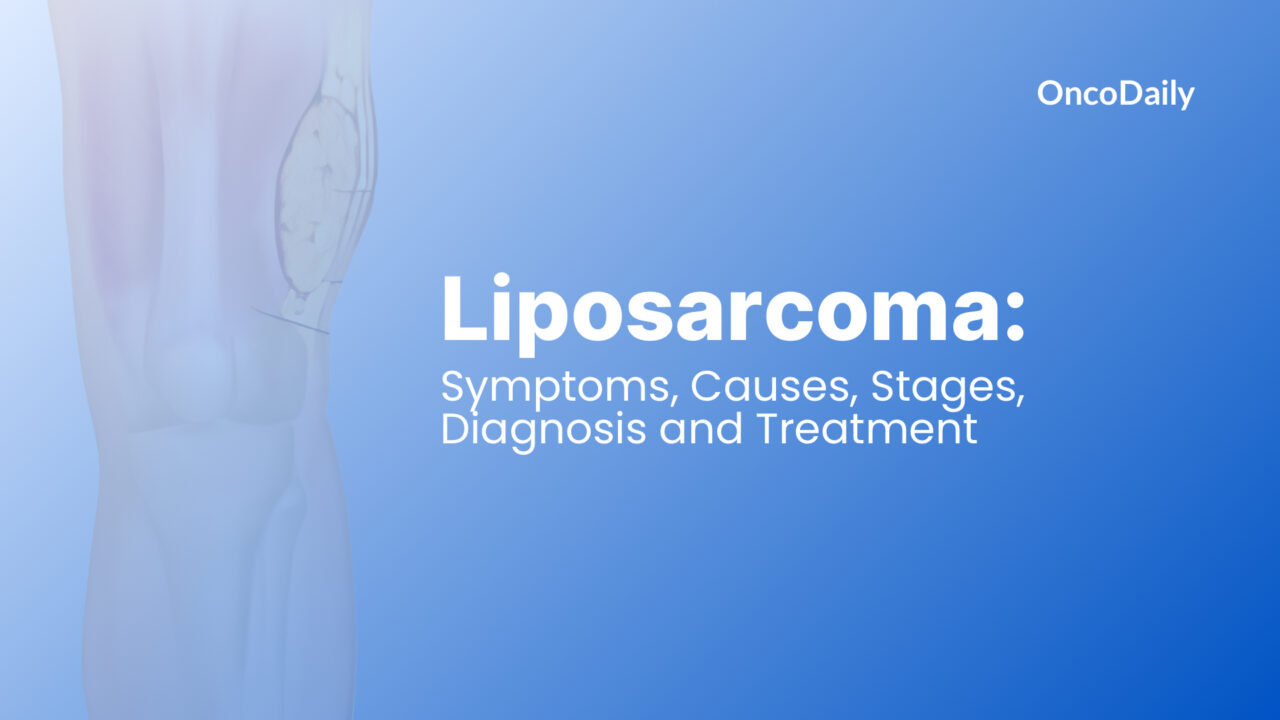
Read more about Liposarcoma: Symptoms, Causes, Stages, Diagnosis and Treatment on OncoDaily.
What Can You Expect During Eribulin Treatment?
Eribulin is administered through an intravenous (IV) infusion, usually once every three weeks. The infusion is typically given in a healthcare setting, such as a hospital or outpatient clinic. Each session takes about 2 to 5 minutes, depending on the patient’s condition. Before each treatment, your healthcare provider will conduct blood tests to monitor your health and check for any potential side effects.
While receiving treatment, you will be closely monitored for any reactions, and your doctor may adjust the dosage if necessary to minimize side effects or improve efficacy. Some patients may experience a temporary dip in blood cell counts, which can lead to increased susceptibility to infections, bleeding, or fatigue.
Eribulin Dosage and administration
Halaven (Eribulin) is given as an intravenous (IV) infusion. For metastatic breast cancer or liposarcoma, the recommended dose is 1.4 mg/m² on Days 1 and 8 of a 21-day cycle. It’s administered over 2-5 minutes. The medication should not be mixed with dextrose or given through the same IV line as other drugs. Treatment duration will be decided by your doctor. Eribulin can be stored at room temperature for 4 hours or refrigerated for up to 24 hours.
Eribulin side effects and management
Eribulin (Halaven) is used to treat metastatic breast cancer and unresectable or metastatic liposarcoma. While effective in extending survival, it can cause side effects that range from mild to severe. It’s important to manage these side effects early to avoid complications.
Common Side Effects
- Fatigue: Experienced by more than half of patients. Rest, good nutrition, and light physical activity can help manage fatigue.
- Nausea and Vomiting: Often occur but can be controlled with anti-nausea medications like ondansetron.
- Constipation: Common but manageable with fiber, hydration, and stool softeners or laxatives.
- Alopecia (Hair Loss): Hair thinning or loss is common but temporary, reversing after treatment.
- Peripheral Neuropathy: Numbness or tingling in hands and feet may occur. Monitoring and dose adjustments can help manage this.
- Fever: A low-grade fever is common as the body responds to the drug.
Less Common Side Effects
- Diarrhea: May occur and is managed with antidiarrheal medications like loperamide.
- Loss of Appetite and Weight Loss: May lead to unintentional weight loss. Nutritional support can help.
- Headache and Dizziness: Mild cases usually do not need treatment changes.
- Muscle and Joint Pain: Can be relieved with pain medications.
- Mild Anemia: May cause fatigue or shortness of breath, severe cases may require a blood transfusion.
Serious Side Effects
- Neutropenia (Low White Blood Cells): Increases infection risk. Regular blood tests are essential. Severe cases may require hospitalization and antibiotics.
- Febrile Neutropenia and Sepsis: Infections can be life-threatening. Immediate treatment is crucial.
- Thrombocytopenia (Low Platelets): Can increase bleeding risks. Platelet counts are monitored, and transfusions may be needed.
- QT Prolongation: Affects heart rhythm. ECG monitoring and correction of electrolyte imbalances are recommended.
- Severe Peripheral Neuropathy: If severe, this may be permanent, requiring dose reduction or discontinuation.
- Electrolyte Imbalances: Low potassium or calcium can lead to muscle weakness and heart issues. These levels are monitored and corrected.
- Pulmonary Toxicity: Rarely, lung issues like pneumonia may occur. Any new respiratory symptoms should be checked immediately.
Eribulin and Pregnancy
Eribulin can harm a developing baby and should be avoided during pregnancy. Women planning to become pregnant or currently pregnant should not use this drug. Effective contraception is advised during treatment and for at least two weeks after the last dose. Men should also use contraception for 3.5 months after treatment.
It’s not clear if Eribulin passes into breast milk, so breastfeeding mothers must decide whether to continue breastfeeding or treatment, considering the risks to their child.
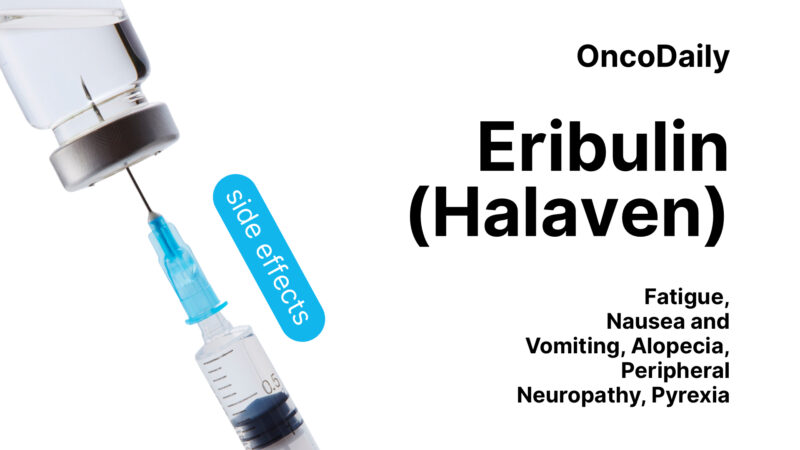
What to Avoid While on Eribulin?
While on Eribulin treatment, it’s important to avoid certain activities and substances that may interfere with the drug’s effectiveness or cause additional side effects. For instance:
- Avoid live vaccines: Live vaccines can be harmful to people undergoing chemotherapy because their immune systems are weakened. Always consult your doctor before receiving any vaccinations during treatment.
- Limit alcohol intake: Drinking alcohol in excess can worsen certain side effects of chemotherapy, such as nausea and fatigue.
- Grapefruit and grapefruit juice: These can affect how Eribulin is metabolized by your body, so it’s best to avoid them during treatment.
What to Expect Long-Term?
Eribulin is not a cure for cancer, but it can help control cancer and improve survival. The goal of treatment is to help you feel better and live longer. If the cancer progresses, your doctor may discuss other treatment options with you.
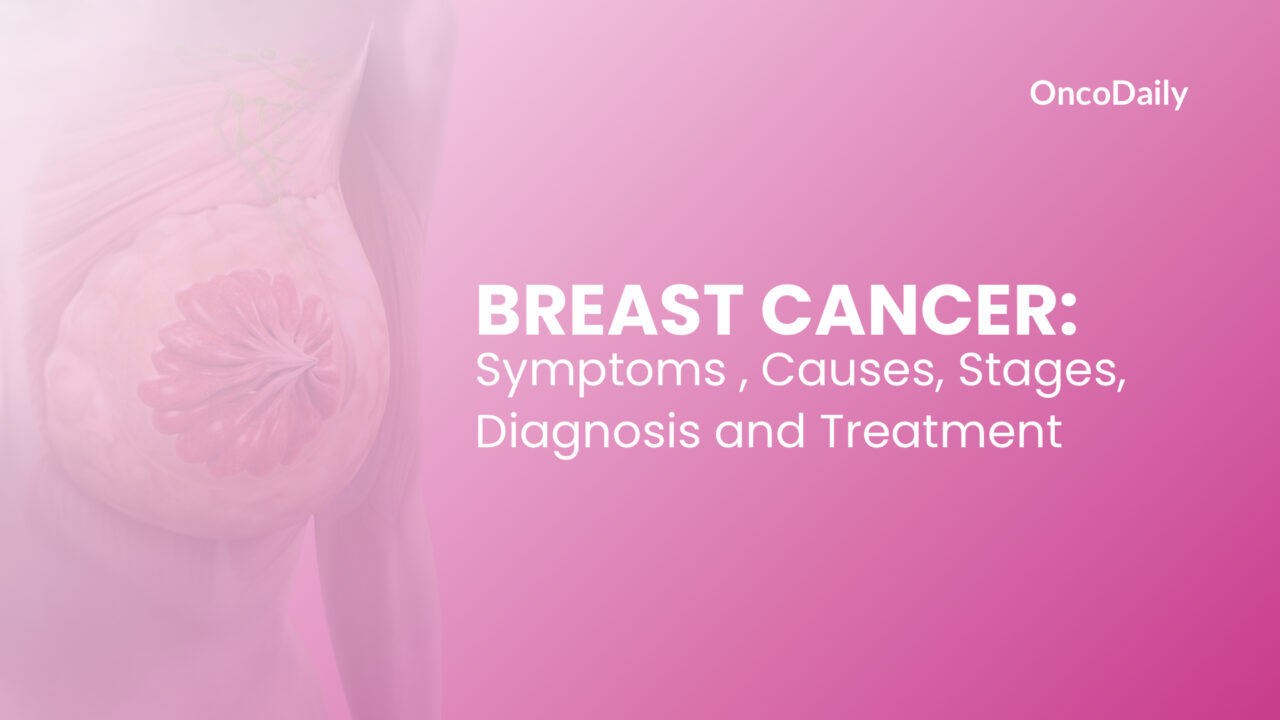
Read more about Breast Cancer: Symptoms Causes, Stages, Diagnosis and Treatment on OncoDaily.
Real-Life Effectiveness
Eribulin has shown effectiveness not just in clinical trials but in real-world settings too. Patients often experience improvements in quality of life and survival. Your healthcare team will work with you to monitor how well the drug is working for you.
In a 2019 study, Halaven was combined with gemcitabine to treat patients with metastatic urothelial carcinoma who could not use cisplatin due to conditions like kidney issues. The treatment resulted in a 50% response rate, with a median overall survival of 11.9 months and progression-free survival of 5.3 months. The most common side effects were fatigue, neutropenia, and anemia.
A 2024 study looked at how certain biomarkers affected treatment outcomes in metastatic breast cancer patients using Halaven or CDK4/6 inhibitors. It found that specific gene markers predicted better survival with Halaven, suggesting that these could guide treatment decisions for some patients.
Looking Ahead – The Future of Eribulin
Research into Eribulin continues, and doctors are exploring how it can be used for more types of cancer. Ongoing studies may also show how it can be combined with other therapies to improve outcomes for cancer patients.
In 2025, the Phase III EMERALD trial compared Halaven to taxane-based treatments (docetaxel or paclitaxel) combined with trastuzumab-pertuzumab for first-line treatment of HER2-positive metastatic breast cancer. The study showed that Halaven was as effective as taxane in terms of progression-free survival, with better quality of life and fewer side effects like skin reactions and diarrhea. These findings highlight Halaven as a promising first-line option for HER2+ metastatic breast cancer.
Ongoing trials of Eribulin
The NCT06889688 study is a Phase III trial testing a combination of camrelizumab, apatinib, and eribulin for advanced triple-negative breast cancer (TNBC). The main goal is to see if this combination can improve progression-free survival (how long patients live without the disease getting worse) and overall survival. Secondary goals include comparing how well the treatment works, how long patients live with the disease, their quality of life, and analyzing biomarkers (specific indicators in the body). The study also looks at safety by comparing the side effects of this new combination treatment to standard chemotherapy.
The NCT06678230 study is a Phase II trial testing the combination of eribulin and erlotinib in HER2-negative, locally advanced, or metastatic breast cancer. This study will involve 40 patients who have already received chemotherapy. Patients will receive eribulin (on days 1 and 8) and erlotinib (daily for 14 days with a 7-day break) every 3 weeks. The trial aims to evaluate how well the treatment works in terms of progression-free survival (PFS) and safety, with regular assessments. Treatment will continue until the disease worsens, side effects become too severe, or the patient chooses to stop.
If you’re a healthcare provider, access the professional version here.


